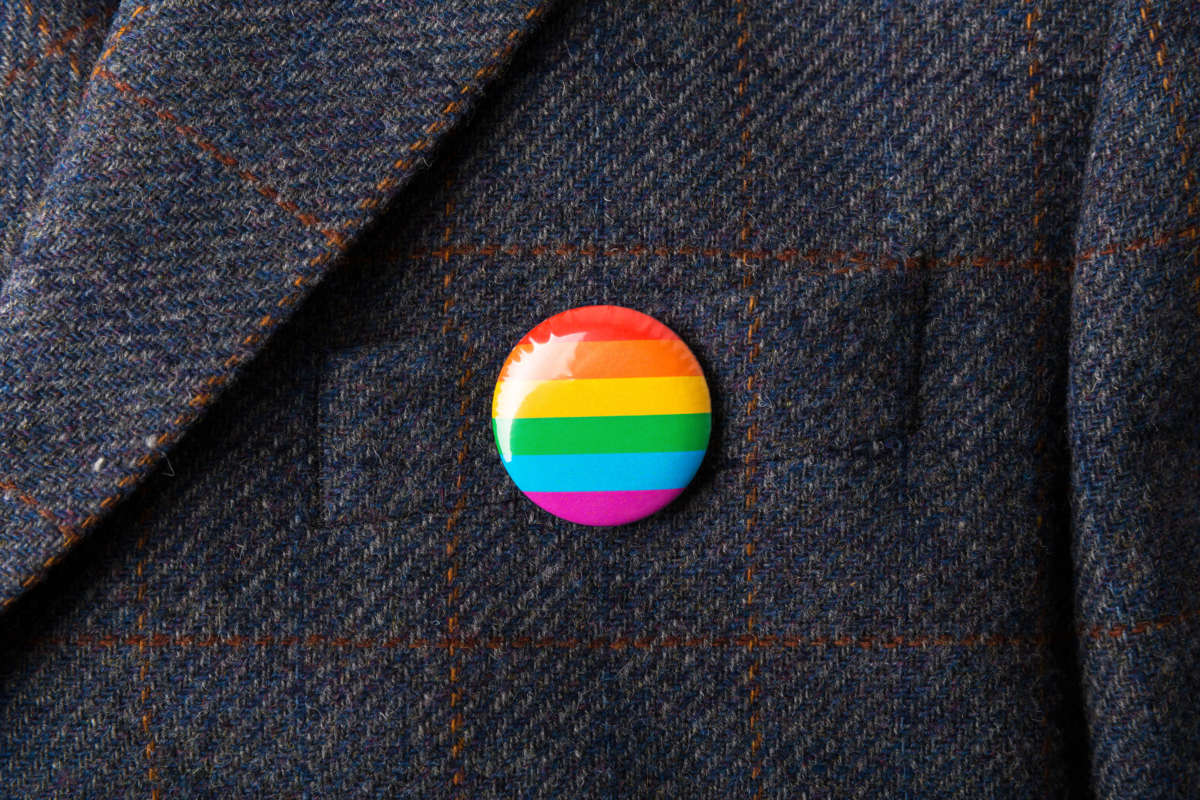Did you know that Truthout is a nonprofit and independently funded by readers like you? If you value what we do, please support our work with a donation.
A superintendent in a Wisconsin school district recently announced a policy that allows the school board to restrict employees from expressing support for LGBTQ community members while at work.
Superintendent Stephen Plum announced the reinterpretation of an existing policy during a school board meeting on July 26. The new interpretation forbids teachers and other administrative staff from expressing political or religious views at work, and bars actions like displaying Pride flags on their desks or wearing clothes with rainbows on them.
School staff will also be barred from including their pronouns in their email signatures, Plum said in his announcement of the policy change, which was posted on the district’s Facebook page.
The expression of such viewpoints “puts people in uncomfortable positions,” Plum said in trying to justify the policy update. A number of school board members appeared receptive to the changes, with only one board member, Jim Romanowski, in disagreement.
“I believe it is a huge mistake to think that we need to insulate our high school students from political expressions,” Romanowski said. “Our students are fully capable of exercising their critical thinking skills to sort through the noise of partisan politics and make up their own informed choices.”
Plum claimed that the policy is fair because it also bans expressions that show support for political figures, and prohibits imagery that includes the “thin blue line” flag. Notably, the “thin blue line” flag has been utilized by far right hate groups, making it incomparable to imagery in support of LGBTQ people, who are often the victims of hate crimes by right-wing extremists.
Some religious symbols, such as cross necklaces, will still be allowed under the reinterpretation of the school policy, Plum added.
Several community members, alumni of the district and former teachers spoke out against the updated policy, saying that it violates speech rights and prevents teachers from showing their LGBTQ students that they are seen and valued.
Trey Korte, a former educator at Kettle Moraine High School (KMHS), said that “as a gay married teacher who taught at KMHS for ten years,” the new policy makes him “incredibly angry and sad.”
“It looks like I made the right decision in leaving” the district, said Korte, who now teaches at a nearby high school. “You all have a responsibility for making ALL students AND staff feel safe, valued, and welcome. You are failing at this duty.”
Coral Heffron Neuhold, who identifies as queer and graduated from Kettle Moraine in 2011, noted that the barring of teachers from sharing their pronouns in emails was particularly worrisome.
“I don’t know if there are any trans members in the current staff, but I don’t know what the School Board would do if a trans staff member isn’t allowed to even show their pronouns in an email signature,” Heffron Neuhold said. “That’s awful.”
The policy comes as LGBTQ students and teachers are facing a series of attacks across the country. Florida’s “Don’t Say Gay” law, which forbids teachers from discussing certain LGBTQ-related content, has led to a number of copycat bills throughout the U.S. Meanwhile, some districts are trying to deny students the right to have their correct pronouns or names recognized, while others are banning trans students from joining sports teams that align with their gender.
Press freedom is under attack
As Trump cracks down on political speech, independent media is increasingly necessary.
Truthout produces reporting you won’t see in the mainstream: journalism from the frontlines of global conflict, interviews with grassroots movement leaders, high-quality legal analysis and more.
Our work is possible thanks to reader support. Help Truthout catalyze change and social justice — make a tax-deductible monthly or one-time donation today.
